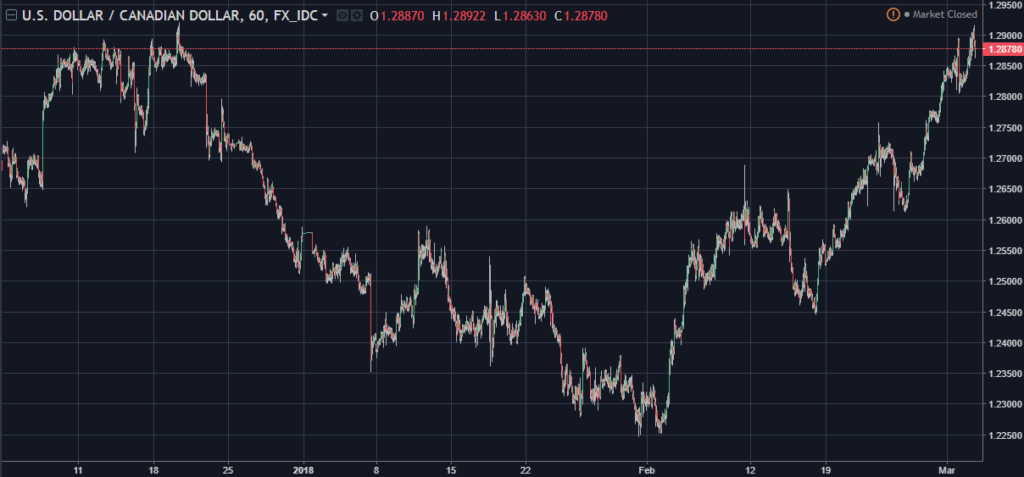This will be an interesting week both from a political and economic data standpoint.
The financial community will pay close attention to Donald Trump and the policy he will sign on steel and aluminum. As you recall, last week, following a hastily called meeting by top aluminum and steel manufacturers, Trump announced that his administration will impose a 25% tariff on steel and a 10% tariff on aluminum.
The reactions to this was swift. The stock market in the US tanked immediately after the news came out. In the following day, the stocks in the other developed countries fell. This week, investors will assess the implications of a trade war and the companies to be mostly affected.
Apart from that, traders will focus on central banks. On Tuesday, the Reserve Bank of Australia (RBA) will conclude its two-day meeting and release the interest rate decision. Traders expect the bank to leave interest rates unchanged at 1.5%. Traders will instead look out for the statement from the bank about the economy and the implications of a trade war. On Wednesday, the country will release the GDP numbers. Traders expect the Q4 GDP to grow at an annualized rate of 0.5%, down from the previous quarter’s 0.6%. The annualized rate is expected to be 2.5%.
On Wednesday, the Canadian Central Bank will conclude its meeting and release its interest rate decision. Traders expect the bank to leave the interest rates unchanged at 1.25%. As with other central bank meetings, traders will wait for the statement from the policymakers. This will show them the thinking behind the rate decision.

On Thursday, the ECB’s MPC will conclude its two-day meeting and release the interest rate decision. Since most traders expect the policymakers to leave rates unchanged, this will not be big news. Instead, they will wait for the press conference by the ECB. In the past, it is this conference that tends to move markets. However, for now, I believe that traders already know what Mario Draghi will say. They expect him to continue with his assessment of the European economy and ending of the QE in September.











Leave A Comment